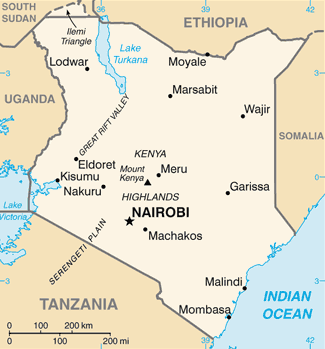It’s the last week of the year, and we are surrounded by reflections on 2011 and resolutions for 2012. Here at Invested Development we have both. Our main ambitions for 2012 are to open our third office in India and test some innovative investment structures tailored especially for the techies in Nairobi. While we are excited about the prospects in India, Africa has made the biggest leaps and grabbed the headlines this year, notably from hopeless to hopeful.
“Wealth and poverty in Africa – interactive” by Claire Provost and the Guardian interactive team on The Guardian Global Development
Wrapping up 2011, The Guardian posted several interactive charts highlighting Africa’s development. In addition to pulling World Bank Indicators, the charts also show which other world economies grew at similar rates to the African countries. For example, South Africa and the United States both experienced GDP growth of about 3%. Ethiopia and China both experienced GDP growth of about 10%. Check it out for projected GDP growth in 2012, economic inequality, stats on the growing middle class, and more.
 |
| Source: The Guardian |
“Africa’s quest for prosperity” by Calestous Juma on The Guardian Poverty Matters Blog
Local Harvard professor Calestous Juma writes in The Guardian on Africa’s transition from hopeless to hopeful. Professor Juma cites the two most important trends to watch are expanded regional markets and “improved strategies to harness the continent’s diasporas as source of technical expertise and business networks.” Initiatives such as the “Cape-to-Cairo grand free trade area” and heavy investment in infrastructure (particularly new fiber-optic cables) will make the continent stronger. Despite the challenges and large capital requirements for development goals, the diaspora and regional integration has the potential to foster sustainable regional growth in 2012.
12 Predictions for Africa Tech Scene in 2012” by Mbwana Alliy on Afrinnovator
Looking back on 2011, Mbwana Alliy offers his predictions for Africa in 2012. Originally from Tanzania and currently working in Silicon Valley, his predictions for 2012 are valid and we hope he’s right. Smartphone adoption, the evolution and maturity of mobile money, and mobile commerce are trends that we have watched closely in 2011 and we are confident in continuing to pursue them in 2012. As we are already seed stage, impact-focused technology investors, we do not doubt that many others will be following this trend. Alliy’s predictions are worth the read as they offer valuable and candid insights not found in The Economist or the Guardian.


